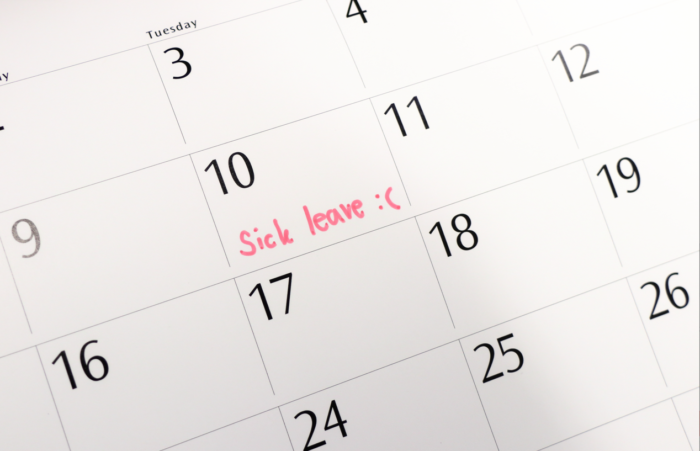More than 60 large and small employers have agreed to take part in a new three-year programme designed to improve workplace health and reduce absence.
This is one of the key recommendations of the independent Keep Britain Working review, published today by former John Lewis boss Sir Charlie Mayfield.
Mayfield is calling for the Government to set up this three-year project, working with a range of employers to develop evidence-based solutions that will create a ‘healthy work standard’ and improve workplace health provision by 2029.
This review has been welcomed by the Government, with the Work and Pensions Secretary Pat McFadden confirming it will set up “employer-led Vanguards” as part of their wider ‘plan for change’ aimed to driving economic growth.
These “vanguard” employers will look to embed many of the recommendations in this Government-commissioned review. The Mayfield report said this phase will engage diverse employers and providers to test different approaches to improving working health, with a view to collating evidence on which are most effective. This will include done via a new Workplace Health Intelligence Unit.
A number of employers, including Zurich, Unum, British Airways, Google and Sainsbury’s are set to become early adopters of the schemes with other household names, such as Tesco, PepsiCo and BP expressing interest.
The final stage of the Mayfield review, published today, sets out the extent of the problem in the UK, with regards to economic inactivity due to ill health, and recommends a number of remedies.
It proposes creating a “fundamental shift from a model where health at work is largely left to the individual and the NHS, to one where it becomes a shared responsibility between employers, employees and health services.”
Mayfield says: “Employers will need to do more. They are uniquely placed to act on prevention, to support rehabilitation, and to remove barriers for disabled people. They also stand to gain most from higher productivity and lower costs. Much of what’s required is not additional expenditure: employers already invest billions in health and wellbeing but need greater clarity on what works. The priority now is to get them off the sidelines and onto the pitch.”
However he adds that employees also have a role to play, not least in recognising that work can be demanding and “setbacks are part of life”.
It adds: “Health and work are not always easy partners, but they are mutually reinforcing. Supportive workplaces matter and so does personal responsibility. Disengaging from work and potential support leads to detachment and dependency; staying connected to work supports recovery and resilience.”
The report also calls on Government to help “reset the system” by setting up this three-year scale project to develop better workplace health provision.
The report says one in five working-age people are now out of work — a far higher percentage than in other European countries. This figure has been rising with 800,000 more people out of work due to health problems today than when compared to 2019. The report says that without action this figure will rise by a further 600,000 by 2030.
The report identified a number of key groups affected, with young adults being particularly hard hit. The report said there had been a significant growth in the number of under 35 year olds out of work with mental health conditions, a figure that has risen by 190,000 (or 76 per cent) between 2019 and 2024.
The report also highlighted problems with older workers leaving the workplace due to musculoskeletal problems, often compounded by multiple health issues, and barriers which prevented many disabled people finding and staying in work.
The report identified three persistent problems. It said: “[There is a] culture of feature, felt by employees and, differently, by employers, especially line managers. This creates distance between people and discourages safe and early disclosure, constructive conversations and support just when they are needed most.” Addressing those could lead to better early intervention, reducing the length of time people are off sick and reducing the number of people who are permanently out of work.
The report also highlighted a “a lack of an effective or consistent support system for employers and their employees in managing health and tackling barriers faced by disabled people. This lack of support is sometimes compounded by a ‘fit note’ system that is not working as intended.”
The report proposes creating ‘stay in work’ plans, for healthy employees, with a focus on preventative measures nd and ‘return to work plans’ for those who are off sick, with a view to delivering faster access to relevant support. Mayfield states that the aim would be for these plans to eventually replace the ‘fit note’ system, issued by GPs.
Mayfield highlighted the support that can be provided by third parties, be it occupational health, EAP providers or insurers, but said provision is often patchy.
“We found that there is a great disparity when it comes to the support available. Some employers offer excellent occupational health (OH) support or well-designed Employee Assistance Programmes (EAPs). This was, however, heavily skewed towards large employers (86 per cent of large employers offer some form of OH provision while only 30 per cent of SMEs do).”
The report adds: “The common feedback on OH we heard was that it lacks independence and that OH advice misunderstands the working environment, resulting in reasonable adjustments that are generic or ill-suited to the context of the work.”












